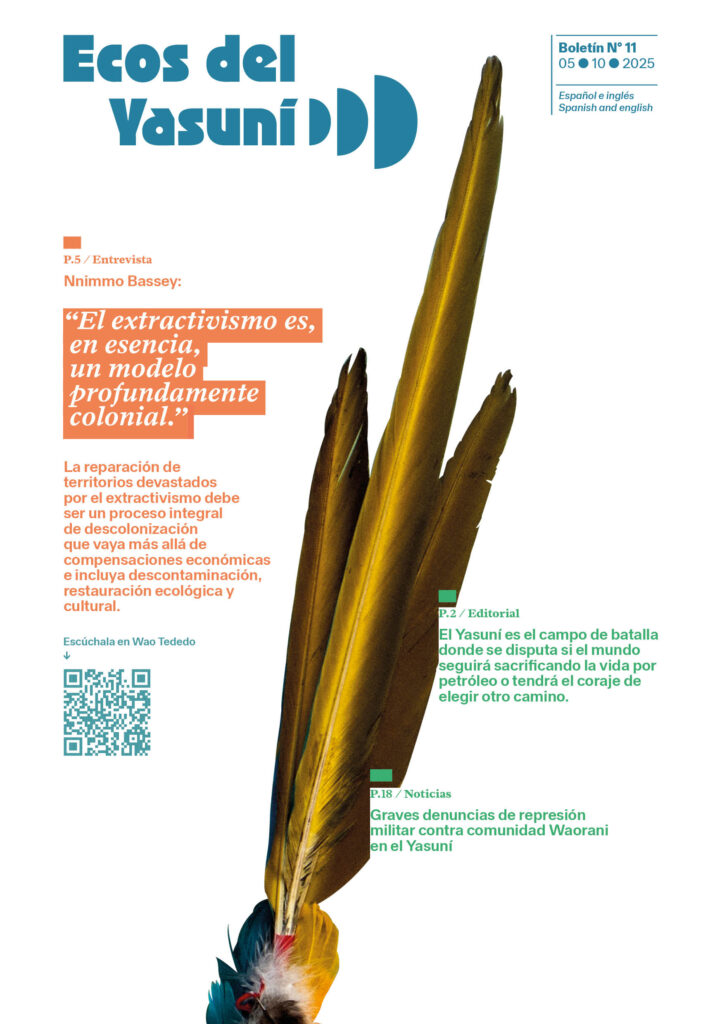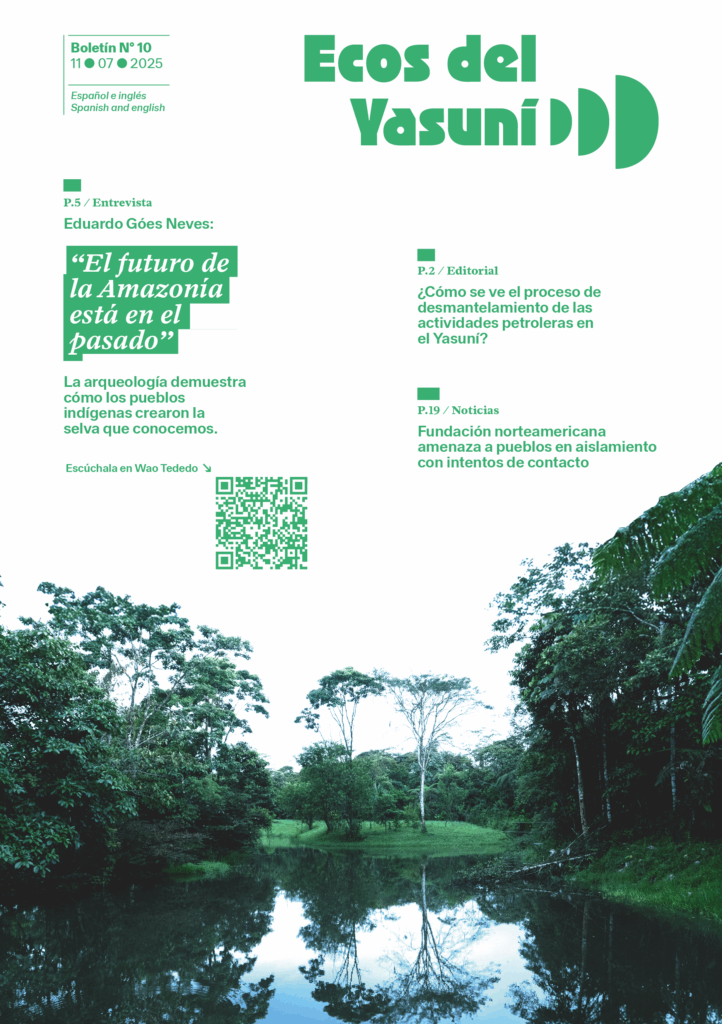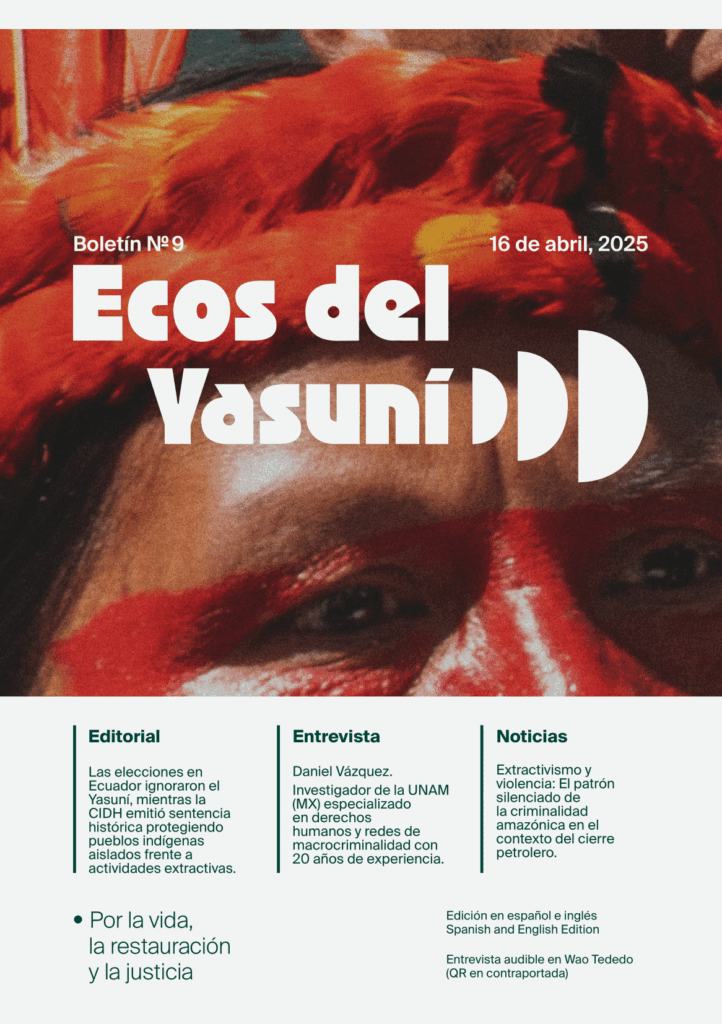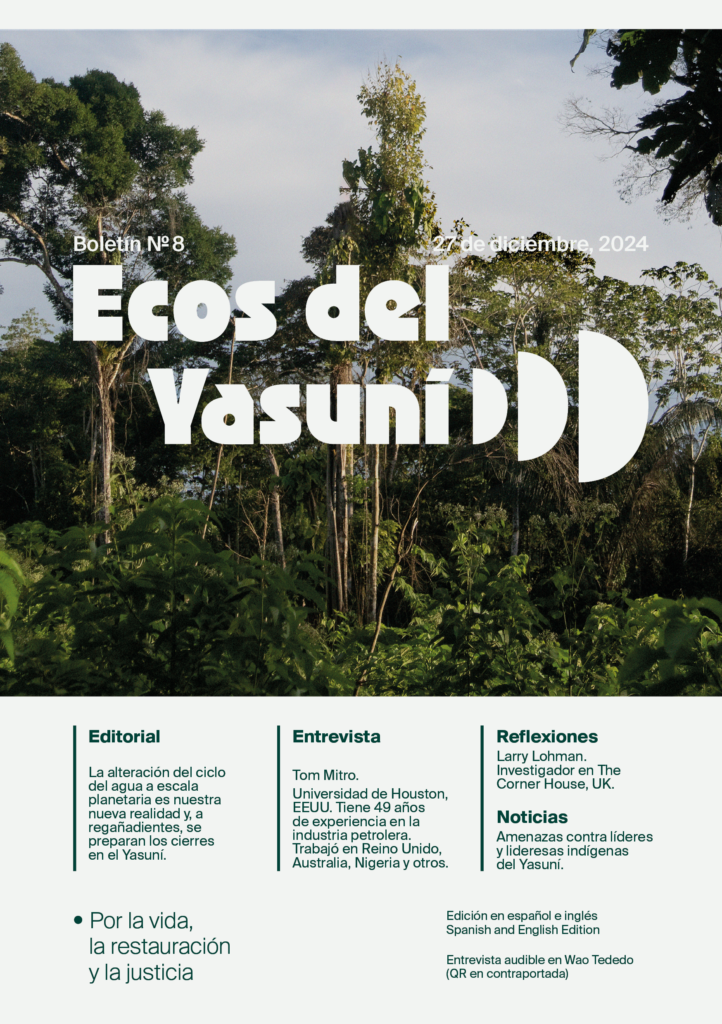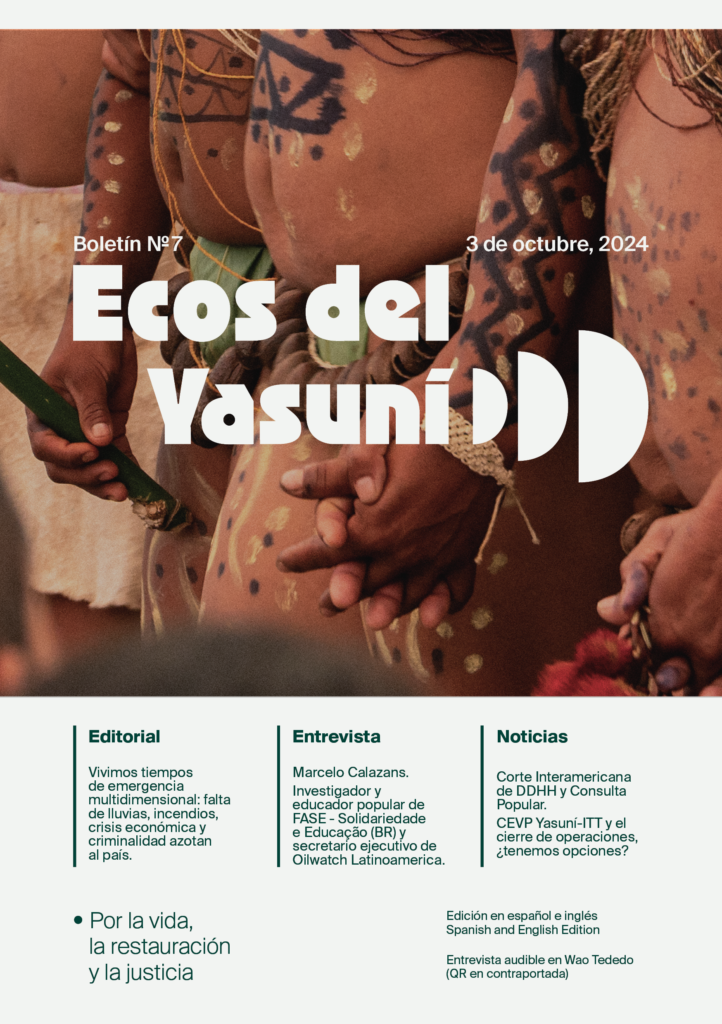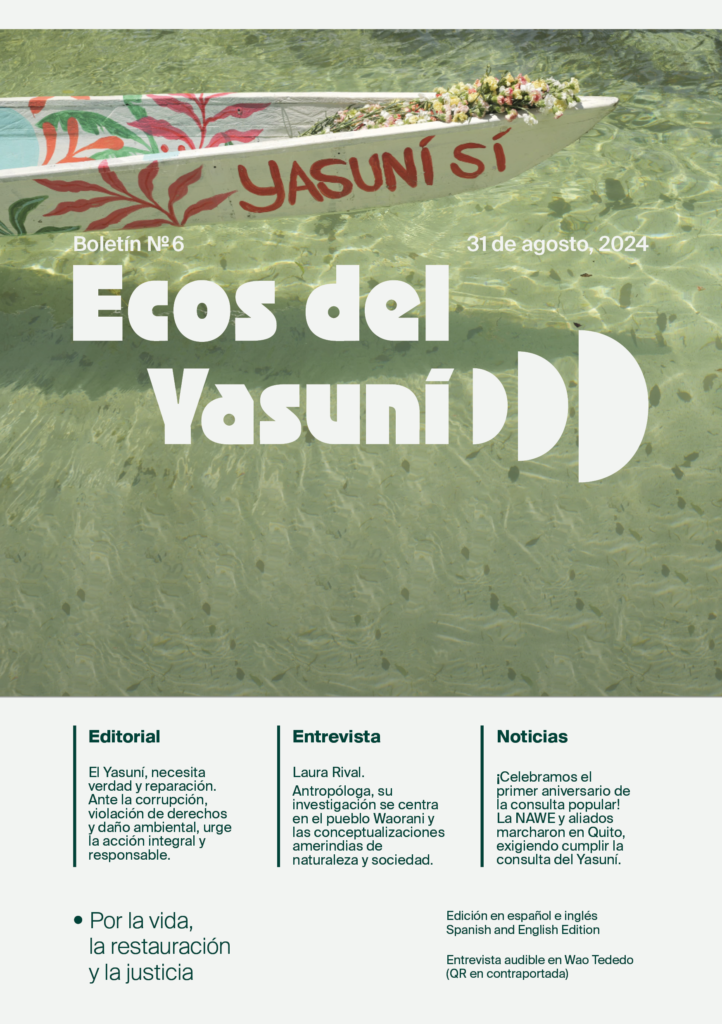Este número aborda la disputa geopolítica por el Yasuní, donde convergen intereses petroleros de China, que busca asegurar suministros energéticos en la Amazonía ecuatoriana, y de Estados Unidos, que propone instalar bases militares en Ecuador. A dos años del referéndum histórico donde el 57% de ecuatorianos votó por dejar el petróleo bajo tierra, el gobierno ha cerrado apenas 10 de 247 pozos activos, incumpliendo el mandato popular. La edición presenta una entrevista con el activista nigeriano Nnimmo Bassey, quien vincula extractivismo con colonialismo y propone que la reparación territorial debe incluir auditorías independientes, descontaminación, restauración ecológica-cultural y justicia epistémica, promoviendo la «Yasunización del mundo» como estrategia global anticolonial. Finalmente, denuncia la represión militar contra la comunidad Waorani de Mintaro en septiembre de 2025, con detenciones arbitrarias durante protestas, evidenciando la criminalización de la resistencia indígena en defensa de sus territorios ancestrales.
